Understanding Commercial Insurance and Debt
Commercial insurance is essential for businesses to operate and mitigate risk. It provides financial protection and coverage helps businesses manage unexpected costs, ensuring that they can recover quickly from incidents that could otherwise lead to major financial losses.

The Role of Debt Collection in the Insurance Industry
Businesses may occasionally delay premium payments or fail to pay deductibles after filing a claim. They might also encounter overpayments, unjust enrichment, or additional premiums due after a policy audit. In such cases, these payments may go into collections. This collections process can be handled internally or be outsourced to a third party debt collection agency.
Debt collection agencies play a crucial role in the insurance industry by helping insurance carriers recover unpaid premiums, deductibles, and other outstanding balances. These agencies operate by leveraging their expertise in credit management and recovery to ensure that insurance companies maintain healthy cash flows and minimize financial losses.
Steps To Recover Funds
Debt collection agencies utilize advanced technology, data analytics, and skip tracing techniques to locate debtors and recover funds efficiently. Their expertise and resources allow insurance companies to focus on their core operations while ensuring that outstanding debts are managed professionally.
Account Review
Initial Contact
Negotiation
Escalation
Follow-up
Order To Cash Process
The O2C process includes all the steps from when a customer places an order until the business receives payment.
1. Order management:
2. Order fulfillment:
3. Credit management:
4. Invoicing:
5. Payment collection - NSB's specialty
Legal and Compliance Standards for Debt Collection in the Insurance Sector
Debt collection in the insurance industry is governed by a complex legal and regulatory framework designed to protect both creditors and debtors. Key regulations and laws include:

State Regulations:
Each state may have its own regulations governing debt collection, which can vary significantly. Insurance companies and debt collection agencies must comply with state-specific laws, including licensing requirements and permissible collection practices.
Contract Law:
Debt collection efforts are also governed by the terms and conditions outlined in the original insurance policy contracts. Agencies must adhere to these contractual obligations during the collection process.
Industry-Specific
Regulations: Insurance companies must also comply with State and Federal regulations specific to the insurance industry.
Compliance with these regulations is essential to maintain the integrity of the debt collection process, protect the rights of debtors, and ensure the legality of collection efforts.
What Happens To Unpaid Commercial Insurance Policies?
Unpaid premiums, unpaid deductibles, overpayments, and additional premiums are identified through commercial policy audits.
When attempting to collect, it is crucial for organizations to have an agreed-upon internal process that is consistently applied to every case. The exact internal policy will depend on the department's budget and time allocation. Ideally, there should be a standardized communication and recovery process over a 60-90 day period, involving letters, emails, and phone calls.
Organizations should maximize the amount that can be collected internally before considering outsourcing.
What are the Most Common Reasons for Unpaid Premiums and Deductibles in Commercial Insurance?
Economic Downturns:
During economic recessions, businesses may struggle with reduced revenue, making it difficult to allocate funds for insurance premiums and deductibles.
Cash Flow Issues:
Even profitable businesses can experience cash flow problems, especially if they have high operating costs or delayed receivables. This can lead to delayed or missed premium payments.
Administrative Errors:
Mistakes in billing, policy documentation, or communication can result in unpaid premiums. For example, an invoice might be sent to the wrong address or an automatic payment might fail due to an outdated payment method.
Policy Misunderstandings:
Business owners might not fully understand their policy terms, leading to confusion about payment schedules, audit processes, and deductible responsibilities.
Prioritization of Expenses:
In times of financial strain, businesses might prioritize other expenses over insurance premiums, viewing them as less immediate necessities.
Best Practices for Insurance Carriers
Tips and Best Practices for Managing Accounts Receivable
- Implement a Robust Invoicing System: Ensure that invoices are accurate, detailed, and sent promptly. Clearly outline payment terms and due dates to avoid confusion.
- Regular Follow-Up: Establish a consistent follow-up schedule to remind clients of upcoming and overdue payments. Use a combination of emails, letters, and phone calls.
- Offer Flexible Payment Options: Provide multiple payment methods and consider flexible payment plans for clients facing financial difficulties.
- Monitor Accounts Receivable: Regularly review and analyze accounts receivable to identify patterns and address issues early. Use accounting software to track and manage outstanding balances.
- Train Staff: Ensure that staff handling collections are well-trained in communication and negotiation techniques to handle debtors professionally and effectively.
- Early Intervention: Address overdue accounts as soon as they become delinquent. Early intervention increases the likelihood of successful recovery.

How Can Insurance Companies Measure the Effectiveness of Their Debt Collection Efforts?
- Recovery Rate: The percentage of total debt recovered by the collection efforts.
- Average Days to Payment (ADP): The average number of days it takes to collect a debt from the date it becomes overdue.
- Cost per Collection: The total cost incurred for each dollar collected, helping to assess the efficiency of the collection process.
- Debtor Response Rate: The percentage of debtors who respond to initial contact attempts.
- Legal Action Rate: The percentage of cases that require legal intervention, indicating the severity of delinquent accounts.
- Customer Retention Rate: The rate at which customers remain with the company after collection activities, reflecting the impact on customer relationships.
At What Point Does A Third-Party Collection Agency Assist Insurance Carriers In Recovering Unpaid Premiums or Claims?
A third-party collection agency typically steps in to assist insurance carriers with recovering unpaid premiums or claims when the carriers find themselves overwhelmed.
Carriers may not realize the extent of their need for external help until their accounts receivables start increasing significantly each month, exceeding their internal capacity or manpower to manage effectively.
Once their original payment terms have expired, businesses often lack the internal bandwidth or expertise to continue follow-up effectively.
What are the Benefits of Outsourcing Debt Collection Versus Handling It In-House?
Pros:
Expertise: Specialized agencies have the experience and knowledge to handle collections effectively and efficiently.
Resources: Agencies have access to advanced tools and technologies that improve collection success rates.
Focus: Outsourcing allows insurance companies to concentrate on their core operations, while experts manage debt recovery.
Cost-Effectiveness: Agencies operate on a contingency fee basis, meaning they only get paid when they recover funds, which can be more cost-effective than maintaining an in-house team.
Cons:
Control: Outsourcing means giving up some control over the collection process and relying on a third party.
Reputation: The actions of the collection agency can impact the insurance company's reputation, especially if the agency employs aggressive tactics.
Communication: There can be communication challenges between the insurance company and the agency, leading to potential misunderstandings.
Strategies for Choosing the Right Debt Collection Agency
How Long Does The Recovery Process Take?
The recovery process's duration depends on many factors, such as the complexity of the debt and the debtor's responsiveness. Once a payment has gone uncollected, it's usually faster for a collection agency to recover it rather than the organization itself. Very efficient collection agencies can often collect payment within 30-45 days, can achieve partial payment, full payment, or determine a clear path for recovery or resolution.
The time to the first payment is crucial because the longer a debt goes uncollected, the less likely it is to be recovered. Prompt action increases the chances of successful debt recovery.
Impact of Debt Collection on Customer Relationships
Debt collection activities can significantly impact customer relationships and retention. Poorly handled collections can lead to customer dissatisfaction, reputational damage, and loss of business.
However, when done correctly, debt collection can reinforce positive relationships and demonstrate a company’s commitment to fairness and professionalism.

Strategies for Maintaining Positive Customer Relationships During the Collection Process
- Train staff to handle collections with professionalism and courtesy. Avoid aggressive tactics that can alienate debtors.
- Offer multiple resolution options, such as payment plans or settlements, to accommodate the debtor’s financial situation.
- Address overdue accounts promptly but with a focus on maintaining the customer relationship. Early intervention can prevent escalation and preserve goodwill.
- Solicit feedback from customers about their experience with the collection process and use it to improve practices.
Enhancing Brand Value Through Ethical Debt Collection
Debt collection as an industry traditionally carries negative connotations due to aggressive and sometimes unethical practices. However, when done right, debt collection can enhance brand value.
By following the best practices and strategies outlined, insurance carriers can manage their accounts receivable more effectively. Choosing the right debt collection partner can lead to a reputation of fairness, maintain positive customer relationships, increase customer retention, and ultimately enhance brand value and operational efficiency.
How NSB is Leading The Way
Carriers often struggle with efficient collection due to staff turnover, growth, fluctuations in collection volumes, and changes in internal policies. Since time is critical in debt collection, the longer the delay, the harder it is to collect, therefore and it's crucial that they act promptly.
Insurance carriers partner with companies like NSB to assist in their recovery processes by clearing out their receivables backlog and continuing to be a partner for their future non-paying claims. Our services are customizable to meet the current needs of our clients and can be scaled to accommodate their future requirements.
Business process outsourcing (BPO) allows companies like NSB to act on behalf of your team or coordinate efforts on an ongoing basis, allowing insurance carriers to focus on their core operations.
What Expertise And Experience Does NSB Have In Dealing With Insurance-Related Debts And Claims?
Our value lies in our consistent investment in technology, advanced skip tracing capabilities, and experience in the insurance industry since 1986, during which we have supported more than 150 insurance carriers. There are few agencies with the specialized expertise that we offer.
